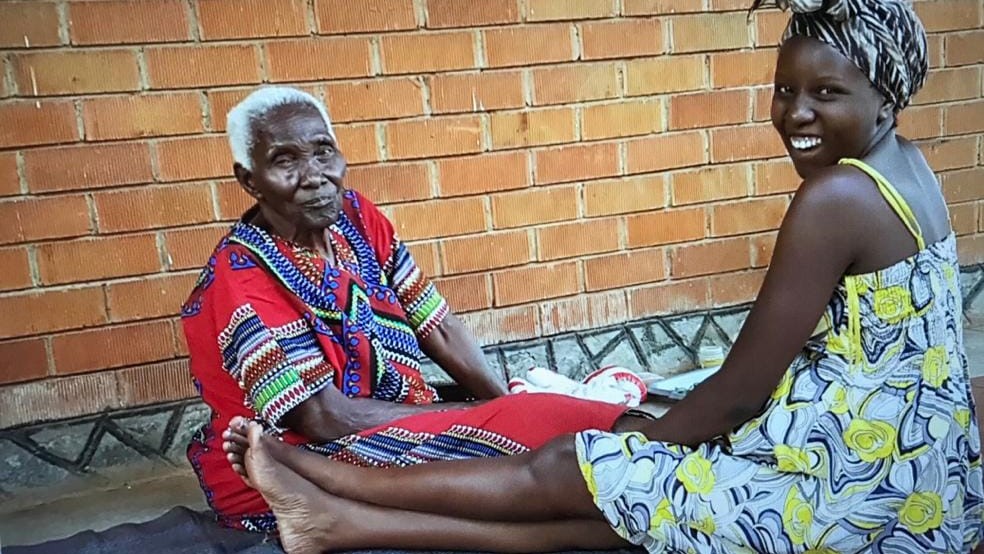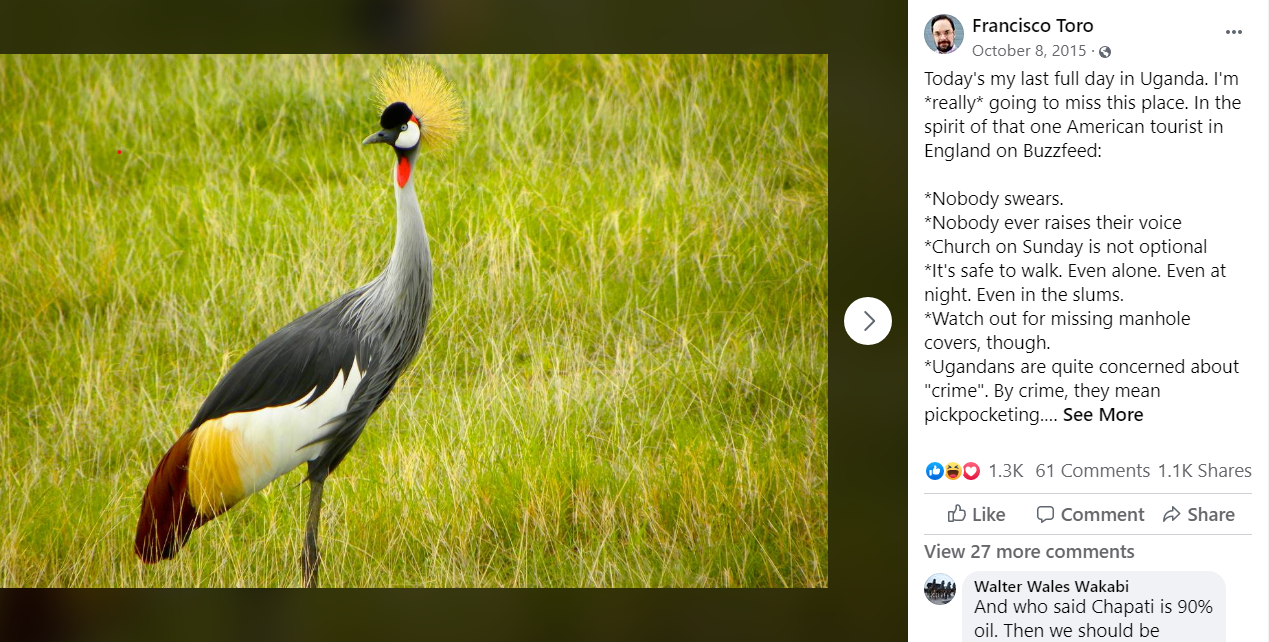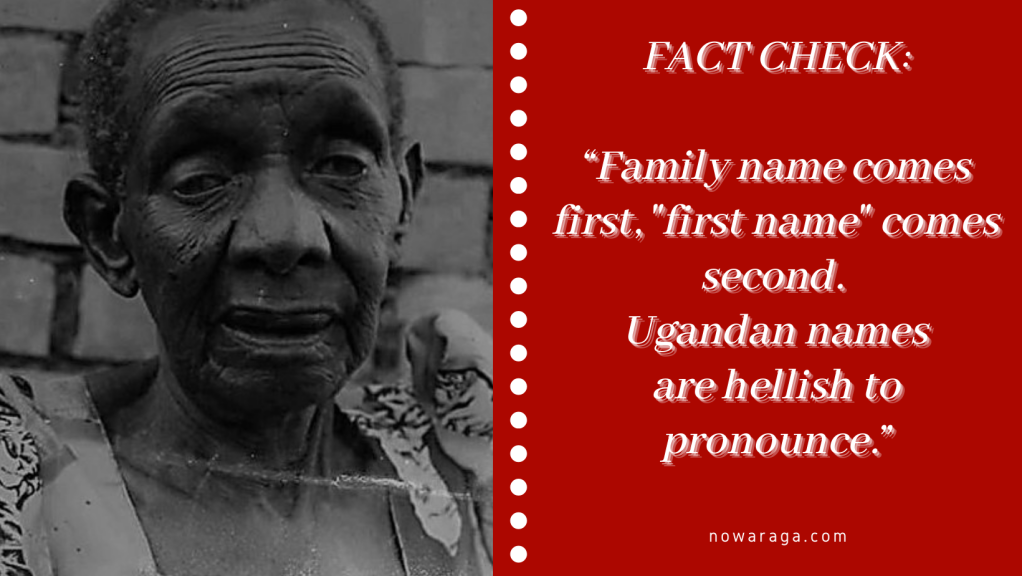“The family name comes first, the “first name” comes second. (And) Ugandan names are hellish to pronounce.”
Francisco Toro
Uganda’s sustaining legacies of colonialism include one’s “first name” not being their “family name”; and in many cases not a Ugandan name. Our colonizers required that we have their names as our “religious names”; and it is those names, for example, one’s “Christian name” that they elevated as the “first name.”
My parents, for example, gave me two non-Ugandan names as my Christian names – Norah and Esther (spelt on my birth certificate as Nora and Esta). Officially, I use “Norah” as my “given name.” Oh yes, post-independence, the description gradually changed from “Christian name” to “first name” to the current politically correct “given name.”

Her sister in love, her husband’s elder sister, addresses her “min abaa” or “min baba” – mother of my father. The wider community at her husband’s ancestral home, fondly address her “min jago” – mother of jago, mother of the chief. When she had her son, and they came back home from the hospital, as is the tradition, her mother in love, her husband’s mother, named the baby after the baby’s grandfather, Zedekiah Otto, who was once a Sub-County Chief. Min abaa and her husband, however, had already named their son a different name; and which name was already documented on the child’s Government of Uganda NIIRA birth certificate and passport application form. And so, out of respect for grandma, he is informally called Jago – Chief, but his official name differs.
In the cultures of Uganda’s first nations, each child is given a unique name and not necessarily the name of the head of the child’s family. Traditionally, a unique meaningful name is given to a child, as it is derived from within the child’s ancestry – the name of a parent, a relative, a clan member or others, who could be alive or deceased.
My, unique name, for example, is Alinga. I am named after my paternal grandmother, may she continue to rest in power. Our legacy of colonialism, however, requires one to have a “family name.” Thus, in addition to one’s own unique name, in some cases, one also uses one’s father’s name.
And so, in addition to Alinga, my parents added my father’s name onto by birth certificate and so I have two “surnames”: Alinga and Owaraga. Officially, I use my father’s name, our “family name”, Owaraga, as my surname; hence my official name is Norah Owaraga.
I doubt, though, that the majority of Ugandans are named in the same format as I am and it is highly likely that the majority of them do not use “family names” as their “surnames”. They likely use their own unique Ugandan names, such as my, Alinga, as their “surname.”
The more we “modernize” (meaning mimic the global-west), however, the naming practices of our first nations are disappearing. Seemingly, increasingly, the practice of giving a child the “family name” is prioritized over and above giving the child their own unique name.
Even when the unique name is given, seemingly, increasingly, like me with my Owaraga name, the “family name” is the one that is officially used and known as the “surname.”
But, one cannot be sure. Which is likely the reason for the change in description from “family name” to “surname” and in the case of the latter it can mean one’s own unique name or one’s “family name.”
As to which name comes first, it depends. The owner, when they come of age, has the right to prescribe which names and the order of the names in their name. Daily Monitor, for example, reports that 160 Uganda politicians are known to have sworn legal instruments “correcting their names.”
Among the latest to do so is Mr. Museveni, who, this month, October 2020, swore a declaration that clarified and “corrected” the content and order of his name to be: “Yoweri Tibuhaburwa Kaguta Museveni.” Tibuhaburwa has always been his name, but was not usually included in the names that he is popularly known by. It is likely his unique name, as Alinga is mine.
Interesting for this post, Mr. Museveni’s correction of his name shows his “family name” or “surname” don’t come first. It is his “Christian name” or “first name” or “given name”, Yoweri (the Uganda version of Joel), that comes first.
Naturally, in as much as Ugandans find it “hellish to pronounce” the names of other nations; so do others obviously find it hellish to pronounce Ugandan names.
********************

WHY THIS FACT CHECK: On 8th October 2015, Francisco Toro, a Canadian expatriate, posted comments on Uganda on his Facebook wall. This month, October 2020, a Ugandan shared Toro’s post onto their wall, from whence I saw it. I established that 55 of 80 statements that he wrote (nearly 70 percent of them), were completely false or partially false. I found Toro’s gaze on our Country quite disturbing; and also appreciated that some are likely to take it seriously as factual, to the extent that it becomes the basis for more fake news on Uganda. And so, I decided to do a robust fact check of Toro’s statements.

